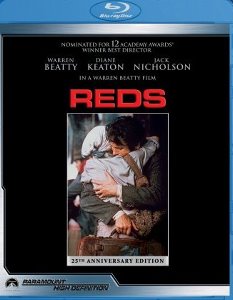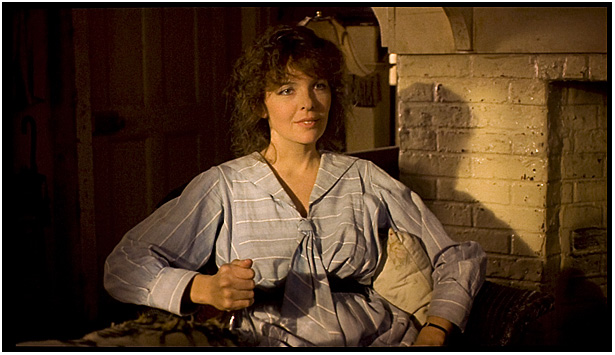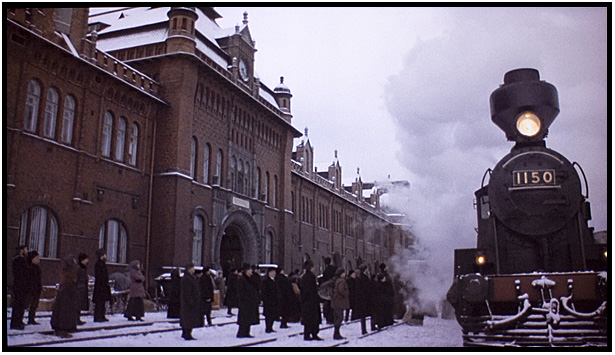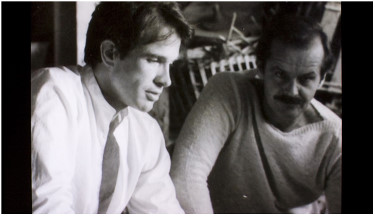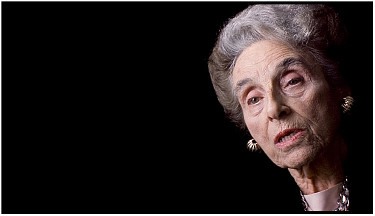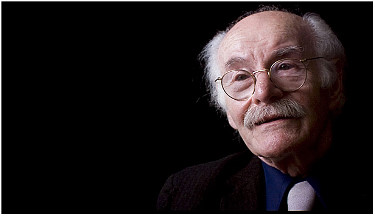Reds BRD
(Warren Beatty - 1981)
Studio: Paramount / Paramount Home Entertainment (USA)
Video:
Aspect ratio: 1.85:1
Feature film: 1080p
195 minutes
Supplements: SD/HD
2 discs
Audio:
English DD 5.1 Surround
English DD 2.0 Mono
French DD 2.0 Mono
Spanish DD 2.0 Mono
Subtitles:
English, French, Spanish, English SDH
Extras
Documentary: "Witness to Reds"
• The Rising
• Comrades
• Testimonials
• The March
• Revolution, Parts 1 & 2
• Propaganda
New DVD Trailer
18 chapters
Standard Blu-ray case (2 discs)
Release Date: November 1, 2006
Reds ~ Comment
Is Warren Beatty's Reds a love story set against the backdrop of the Russian Revolution? Or a story of the rise of World Communism? Or a dramatic analysis of the relationship between the early twentieth century artist and the rise of the proletariat? An autobiographical metaphor for the rise and fall of it auteur? All of these things? None? Your answer would likely depend on your point of view, your investment in political history, and how you feel (or felt some 25 years ago) about Warren Beatty. Nominated for a whopping 13 Oscars, it won in 3 categories: Best Supporting Actress (Maureen Stapleton), Best Cinematography (Vittorio Storaro), and – surprising many at the time – Warren Beatty for Best Director – his only Oscar to date. Beatty also produced and co-wrote the film. Ambitious is hardly ambitious enough a word to describe the project.
An aside: Over the years when I have occasion to think about Reds, I am of the belief that Jack Nicholson also won for his uncharacteristic portrayal of Eugene O'Neill – by which I mean understated and handsome, as opposed to large and predator. (Alas, the Supporting Actor Oscar that year went to John Gielgud for inquiring as to the propriety of washing Dudley's Moore's squirt gun. It wasn't so much that he asked – but it was the way he asked.) For Nicholson's performance alone, Beatty deserved the gratitude of the Academy.
I'm inclined to like this film as a love story much as I like Altered States instead of a piece of science fiction. The two films have more in common than we might have thought, and share a similar challenge: how to make a love story about intellectuals cinematic. Professor Jessup uses his fantastic investigations into consciousness as a way to avoid intimacy, much as John Reed uses his journalism. The pursuit of science, art and politics (in its purer, uncommercialized form) are as admirable as they are seductive; but for most men, they are also handy excuses. Beatty, more than most young Hollywood actors, understood this. At one point, Jack writes to Louise, admitting to rewriting one of his poems, "Politics sure plays hell with your poetry. I miss you, honey. I miss walking on the beach." Jack feels the connection, but he is not yet aware of its meaning.
Reds
The Score Card
The Movie : 8.5
At no time since the American Civil War was a political idea so attractive as communism, nor as inspiring. It seemed a logical extension of the emancipation of the black man and the labor movement in particular. As a movement, it reached its peak in both the U.S. and Russia in the second decade of the last century. John Reed, as Beatty depicts him, could hardly be called an independent observer. His radical journalism eventually led him into the American Communist movement and to Russia itself where he was swept into and away with the October Revolution of 1917 and its aftermath. Reed is a historical figure, the author of Ten Days That Shook The World, and the only American to be buried in the Kremlin Wall, so we are told.
Reed's and Louise Bryant's story is commented on by an assortment of witnesses in a sort of Greek chorus. People who were "there," who remembered well or less well the feelings and events of those times, people who knew John Reed and Louise Bryant. Old people, photographed in all their beautiful cragginess against a black void by Storaro. A bold and inspired stroke. At once, we see the relevance and liabilities of perspective as we see the same for on-the-spot journalism. The witnesses make it clear that Reds is going to be the story of Louise Bryant and John Reed as much as a commentary on the communist movement in the U.S. and Russia.
I know there's a good deal of disagreement about this, but I personally feel the casting is superb. Beatty is a youthful, passionate, preoccupied Reed. (He does bang into one too many overhead lights for my taste, however.) Keaton as Louise is driven, stubborn and a perfect match in her way to Reeds's narcissism. Nicholson, Stapleton (as the activist, Emma Goldman) and Edward Hermann as Reed's friend and editor, are all wonderful as are any number of well known and less well known actors in lesser parts.
In the end, the sweep of Reds is not so much about Communism (despite the title) as it is about a particular sort of American optimism, which can be passionate and just misguided enough to make it interesting.
Image : 7 (6~7.5/9.5)
The score of 7 indicates a relative level of excellence compared to other Blu-ray DVDs. The score in parentheses represents: first, a value for the image in absolute terms; and, second, how that image compares to what I believe is the current best we can expect in the theatre.
What we notice in quick succession is the film's contrast, color and grain – much I remembered them from seeing the movie in the theatre. The image is similar to the SD version, only better, as we would expect: those extra colors that high definition grants us come in handy when so much of the movie keeps us either in smoke laced darkness or muted pastels. Still, I found sharpness to be less than what I hoped, especially for the witnesses. If you're not being critical about that aspect of things, you'll likely be swept into the image anyhow simply because of how it's photographed, to say nothing of those faces and voices. (Norma Desmond was only half right!)
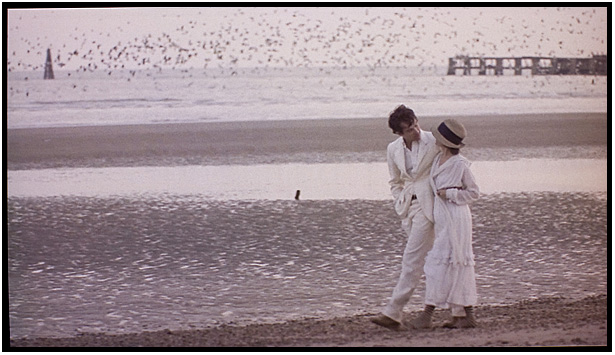 |
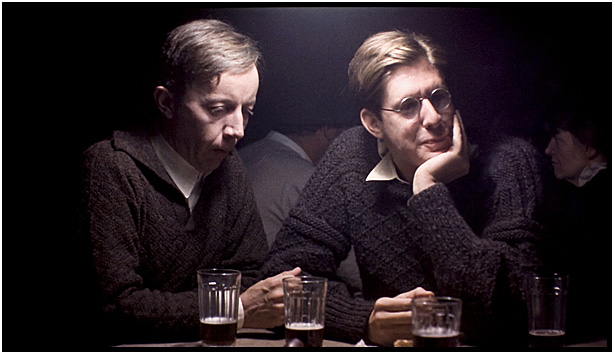 |
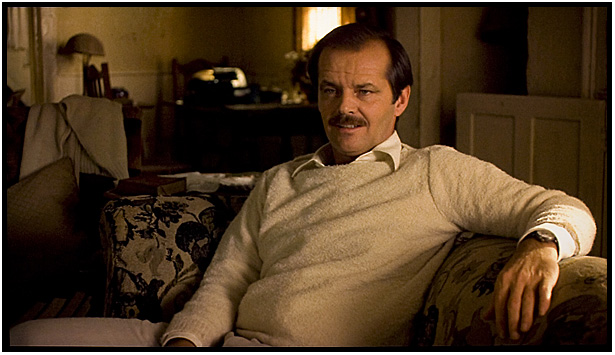 |
|
|
|
|
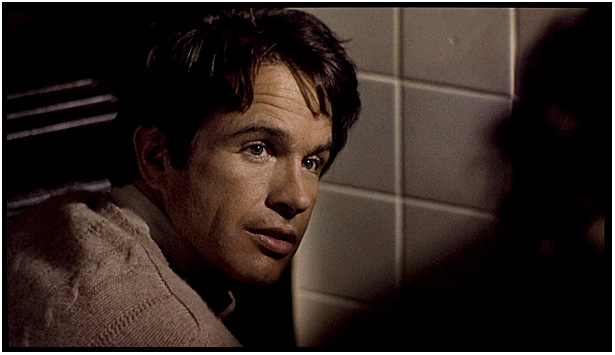 |
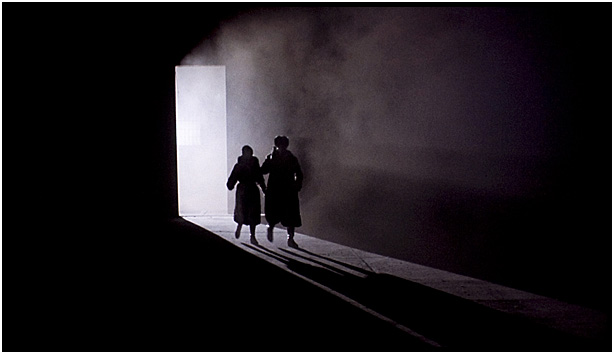 |
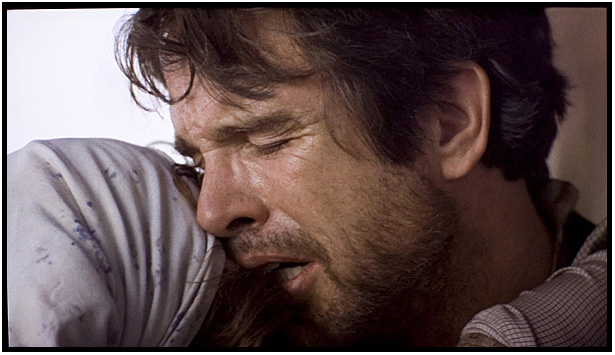 |
Audio & Music : 7/9
Nothing remarkable here. I prefer the 5.1 mix to the mono: more space and ambiance without sacrificing focus. The music is nice, the dialogue clear, but I longed for the spaciousness and dramatic impact of a Lawrence of Arabia. I especially liked the way period music was blended into Steven Sondheim's original score.
Operations : 6
Like the two-disc SD Special Edition, there is a break at the same point as the theatrical Intermission, which is nice since the movie runs over 3 hours. The documentary is on the second disc, along with the remaining 8 chapters. The menu functions are straightforward, however there are only 18 chapters spread over the 3+ hours of the movie. Worse still, the thumbnails are, with few exceptions, inconclusive as to where you might end up.
Extras : 7
There is no commentary track (as Beatty is opposed to them in principle), but the 75-minute documentary, "Witness to Reds" is a solid piece that addresses all the relevant aspects of Beatty's project, from gestation to afterthoughts. The documentary, which is introduced and commented on by Beatty, would get a 10 on the Score Card, so the only reason for the "7" is the lack interactive or HD materials.
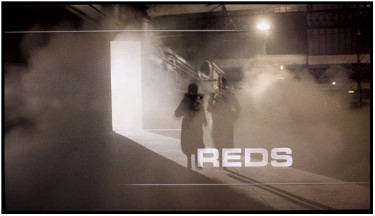 |
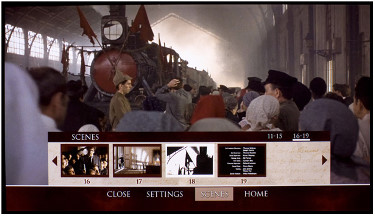 |
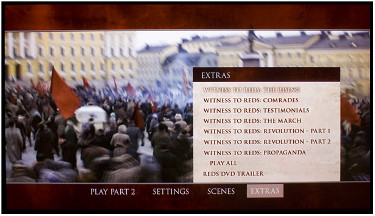 |
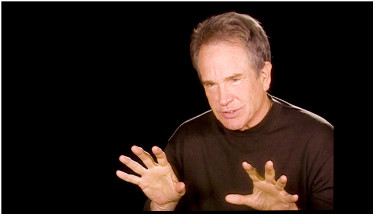 |
|
|
|
|
|
|
Recommendation: 9
Now that Warren Beatty is a proper family man, we can consider the movie on its own terms rather than concerns that this brash young man could have the audacity to produce, star, direct and write such a romantic adventure. While the SD edition is pretty good, the length of the movie demands high definition, if for no other reason than to reduce eye/brain fatigue. The Blu-ray edition makes its length fly by.
Leonard Norwitz
LensViews
September 23rd, 2007
COMING SOON:
Casino Royale
Enter the Dragon


